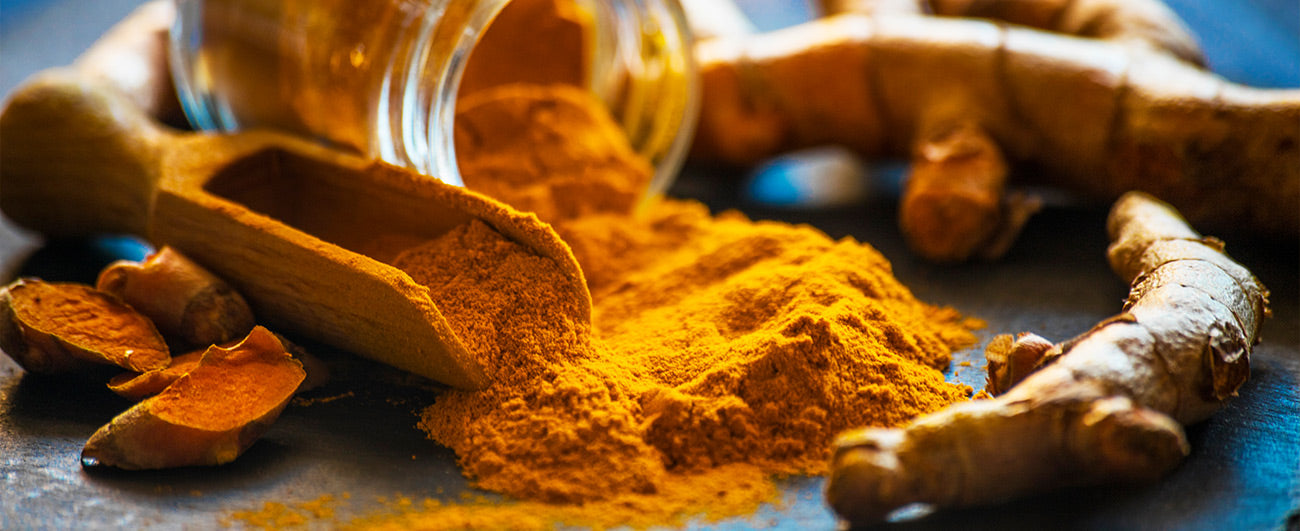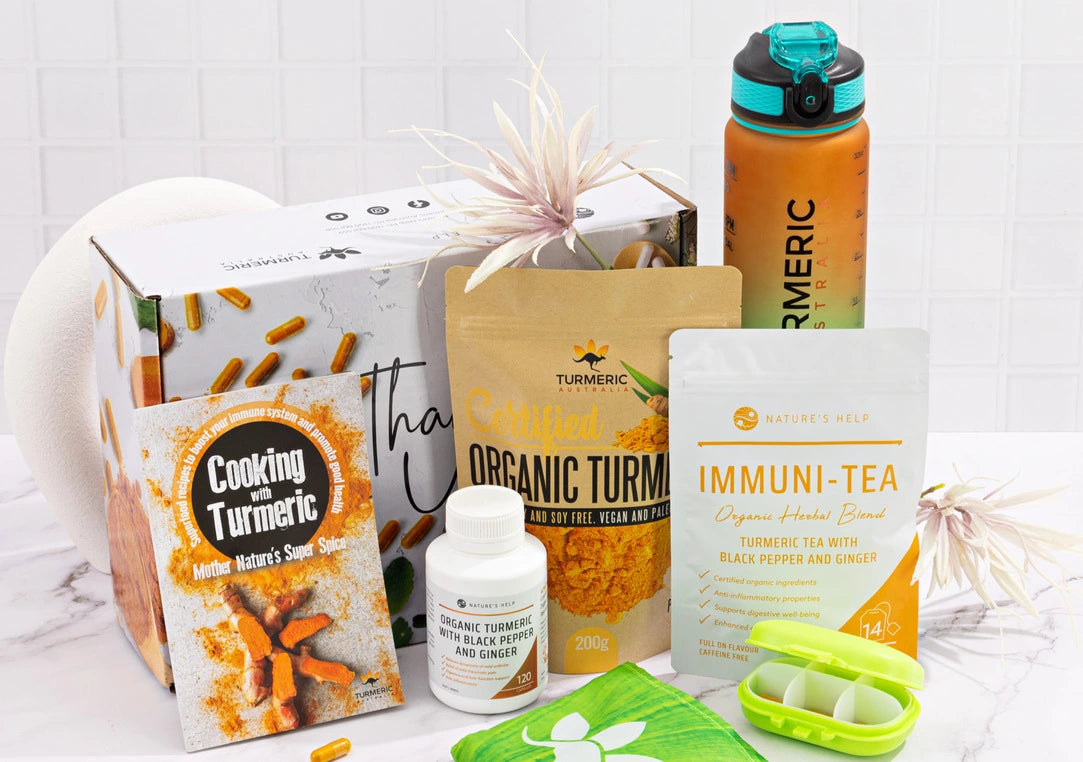Turmeric vs. Curcumin: An In-depth Comparison
We know we already explained in a previous blog the difference of Turmeric and Curcumin: that Curcumin is found with the Turmeric root. Yet, we still get this question daily, so we decided to explain it in-depth. Let’s dig deep into each.
Turmeric is a rhizome (a whole food) from the ginger family that came from India. It has been popular in Asia for thousands of years and used in Ayurvedic medicine, an Indian practice of healing. Although popularly known as a spice used in curry, Turmeric it is also used as food color, an ingredient in make-up products, and as mentioned, in medicine. Specifically, it is used to treat pain and inflammation. Curcumin is its main ingredient, although it has over a hundred powerful compounds helping our general health. It is rich in several nutrients such as B Vitamins, Vitamin A, C, K and E, Potassium, Magnesium, Iron and Zinc, among others. With this, Turmeric has numerous benefits including cell and tissue growth, controlled cholesterol levels, red blood cell production, bone and teeth strength, energy production, and brain function, to name a few. Turmeric also helps fight certain diseases. Turmeric thrives in warm and humid environments, and has a ginger-like appearance, and orange-colored flesh.
Curcumin is the potent ingredient of Turmeric. Turmeric has a family of compounds called Curcuminoids which include curcumin, bisdemethoxycurcumin and demethoxycurcumin. Curcumin is the most abundant curcuminoid in Turmeric and is responsible for its distinct flavour and colour. The Curcumin phytochemical is responsible for Turmeric’s anti-inflammatory and antioxidant properties that pose revolutionary healing potential. Curcumin is extracted from the Turmeric (the whole food). There are thousands of studies that show Curcumin’s positive effects in the body. Curcumin can help in treating certain digestive issues, pains and aches, and even mental and emotional disorders. Tests also show that Curcumin helps prevent the enlargement of certain tumours. Turmeric is 2.5 to 5% curcumin, so Turmeric has to be processed in order to get the most amount of Curcumin as possible.
The modern lifestyle makes us prone to inflammation-related illnesses in the body, so Curcumin is the answer to that. It prevents the molecule NF-kB to activate genes responsible for inflammation. As an antioxidant, Curcumin neutralises free radicals and boosts the body’s other antioxidant enzymes. Curcumin is also helpful for our gut health. Lastly, Curcumin can increase BDFN levels in our brain. BDFN is a hormone in the brain responsible for forming new connections between neurons. Overall, Curcumin has specific benefits in our body that can be maximized when taken in a concentrated form such as supplements.

The Bottomline
By now, we have understood that Turmeric is the main root (the whole food) while Curcumin is its active ingredient is an the extract. So, which one is better? This is not as easy to answer as one might think. Turmeric is a whole food; this is how Mother Nature intended for us to consume it…. The whole food contains curcumin and all the other vitamins and minerals mentioned above. (Think of is like this. Turmeric is like the orange, the whole food and Curcumin is like the Vit C, the extract) All these vitamins, minerals and curcuminoids work in synergy together on the body, quite often not just fixing one thing, but having positive side effects on other things in the body also. For example: Due to turmeric being extremely high in fiber, many people taking it as an anti-inflammatory also notice their once inconsistent bowel movements are now as regular as clockwork.
When you take just the extract on its own, you are leaving behind a number of the other vitamins and minerals so the benefits can be different. Generally speaking, if you are looking for a great all-round general well-being and best curcumin supplement that can deal with mild to moderate joint inflammation or pain, that is anti-viral and high in anti-oxidants, then the turmeric (the whole food) is the best place to start. If you are having to resort to pain medication for a specific inflammatory condition, then the extract may to the best starting point to get the larger amount of curcumin intake.
However, there is a challenge of low bioavailability of curcumin, so Curcumin capsules like Curcumin Gold to increase its absorption efficiency by adding black pepper. You can find the other vitamins and minerals another time or from difference food sources.



2 comments
Hi Cherry, for best results, you can indeed take both curcumin supplements and use turmeric powder. Curcumin supplements provide a concentrated dose of the active ingredient, while turmeric powder adds a variety of compounds that can also contribute to your overall health. Just ensure you’re taking the recommended dosage of the supplements. Hope this helps! 😊
So after reading this interesting article, is it ideal to take curcumin supplements as well as turmeric powder/spice for best results? Thank you 😊